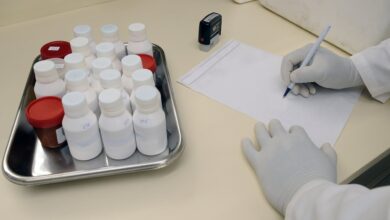6 Warning Signs After Abortion
When it comes to post-abortion care, knowledge is power. Deciding to have an abortion is never easy, and it’s essential to be informed about what to expect afterward. In this comprehensive guide, we’ll discuss the warning signs after abortion you should be aware of and provide you with essential care tips to ensure a safe and smooth recovery.
Warning Signs After Abortion
1. Excessive Bleeding
One of the most common warning signs after an abortion is excessive bleeding. While some bleeding is standard in the days following the procedure, if you soak through more than two maxi pads in an hour or experience heavy bleeding for an extended period, it’s time to seek medical attention.
2. Severe Pain
Experiencing severe pain that doesn’t subside with over-the-counter pain relievers is cause for concern. Abdominal pain after an abortion should decrease gradually. If it intensifies or persists, it could indicate a complication.
3. High Fever
A high fever, especially when accompanied by chills or an elevated heart rate, could indicate infection. It’s crucial to monitor your body temperature and seek immediate medical help if it rises above 100.4°F (38°C).
4. Foul Odor or Discharge
An unpleasant vaginal odor or unusual discharge can be indicative of an infection. Any change in the smell or consistency of vaginal discharge should be discussed with a healthcare professional.
5. Continued Pregnancy Symptoms
If you continue to experience pregnancy symptoms such as nausea, breast tenderness, or morning sickness after an abortion, consult your healthcare provider. These symptoms should gradually subside.
6. Emotional Support
Don’t hesitate to seek emotional support. Reach out to friends, family, or a therapist who can provide the understanding and care you need during this emotional time.
Emotional Aspect of Post-abortion care
- Permission to Grieve: Give yourself the green light and process your emotions. There is no fixed timeline, and it’s okay to feel sadness, guilt, or relief.
- Supportive Groups: Explore support groups for those with abortion experiences. Find understanding and non-judgmental peers who share their stories and reduce isolation.
- Embrace Self-Care: Prioritize activities that bring comfort and peace, whether reading, meditating, or spending time in nature. Mental well-being is as important as physical health.
Care Tips after Abortion

1. Rest and Hydration
After an abortion, your body needs time to recover. Ensure you get plenty of rest and stay well-hydrated. Dehydration can worsen symptoms and slow down the healing process.
2. Pain Management
Over-the-counter pain relievers, as recommended by your doctor, can help manage post-abortion pain. Avoid heavy lifting and strenuous activities that could exacerbate discomfort.
4. Monitor for Warning Signs
Stay vigilant and monitor your condition. If you experience any of the warning signs mentioned earlier, don’t hesitate to seek medical attention promptly.
5. Birth Control Discussion
After an abortion, discussing birth control options with your healthcare provider is essential to prevent future unintended pregnancies and ensure your reproductive health.
When to Seek Professional Help
If you find that your emotional distress is overwhelming and persistent, it’s vital to seek professional help. A mental health professional can provide support and guidance to navigate your emotions effectively.
1. Infection Prevention
Preventing infections after an abortion is crucial for your well-being. Here are some essential steps to follow:
2. Maintain Good Hygiene
Practicing good hygiene can help prevent infections. Ensure that you keep the vaginal area clean, and use unscented, mild soap when washing. Avoid douching, as it can disrupt the natural balance of bacteria.
3. No Swimming or Bathing
While you’re recovering, it’s best to avoid swimming in pools, hot tubs, or taking baths. These activities can introduce bacteria into the vaginal area, increasing the risk of infection.
FAQ’s
What Are the Common Warning Signs After Abortion?
Common warning signs include excessive bleeding, severe pain, high fever, foul odor or discharge, continued pregnancy symptoms, and emotional distress.
How Long After an Abortion Should I Monitor for Warning Signs?
Monitor immediately after the abortion and in the following days and weeks to detect any changes in your physical or emotional well-being.
When Should I Seek Medical Help for Warning Signs After Abortion?
Seek immediate medical help if you experience warning signs, especially excessive bleeding, severe pain, high fever, or persistent emotional distress, to prevent complications.
What Care Tips Can Help Prevent Warning Signs After an Abortion?
Prevent warning signs by resting and staying hydrated, following medical advice, managing pain with recommended medications, seeking emotional support, monitoring your condition, and discussing birth control options with your healthcare provider.
Conclusion: After an abortion, it’s crucial to prioritize both your physical and emotional health. Recognize warning signs, follow care guidance, and seek emotional support for a smoother recovery. Remember, you’re not alone, and there are resources to assist you during this challenging time.
- For further information, please visit our Homepage.


